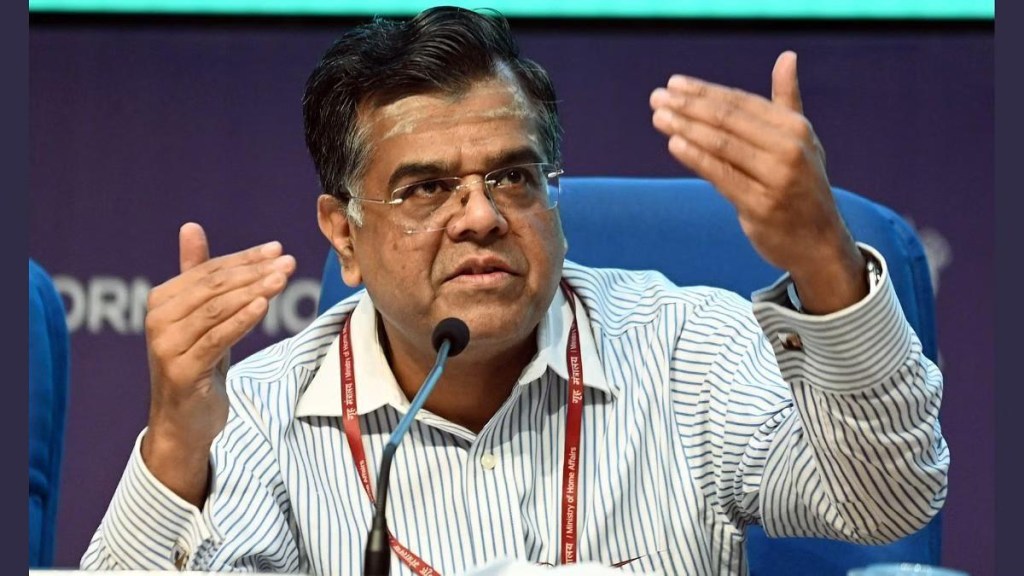Finance secretary TV Somanathan, who has been elevated to the post of Cabinet secretary, has played a pivotal role in the adept management of government finances during the testing period of the pandemic, and bringing about enhanced fiscal transparency despite heavy odds.
His rich experience in handling public monies and ensuring that it is put to the most efficient use, as well in building consensus among different layers of government, including the states, is expected to stand him in good stead in the new assignment.
A chartered accountant who holds a doctorate in economics, the amiable 1987-batch IAS officer from Tamil Nadu cadre, has also managed to take the state governments on board in making further headway in fiscal discipline.
Under finance minister Nirmala Sitharaman, the Centre’s fiscal transparency turned a new leaf as it virtually ended off-budget borrowings, plugging leakages and just-in-time release of funds for schemes to states and central agencies in the second term of the Modi government. The process was led by Somanathan who joined as expenditure secretary in December 2019. Later, he also was designated as Finance Secretary from April 28, 2021.
The Budget Estimates (BEs) of revenue and expenditure, which are made at the start of a fiscal year, have become more realistic during his tenure. The BEs in most cases have turned out to be close to the final numbers (actuals), with revenue estimates often beaten. The fiscal deficit targets were largely over-achieved in the past two years. The target for the current fiscal is set at 4.9% of GDP, much lower than 9.2% in the pandemic year FY21.
At the same time, no excessive reductions have been carried out on the expenditure side. What has been achieved is prudent and credible budget-making and efficient management of expenses and revenues. Often his advice to the government departments was to take the next instalment only after exhausting the previous tranches released, allowing no idling of funds. This helped the Centre annually save a tidy sum of Rs 10,000 crore.
Somanathan’s deft handling of the government finances after Covid-19 broke out in 2020 was most notable. He used the tolerance of higher fiscal deficit worldwide as an opportunity to do a one-time fiscal readjustment by bringing nearly Rs 5 trillion off-budget liabilities into the balance sheet in FY21-FY22. This led the fiscal deficit to a record 9.2% in FY21, but a glide path was rolled out next year to bring it to below 4.5% by FY26 and it is well on track.
This was followed this up with states by tightening norms to discourage fiscal indiscipline by states, many of which resort to debt through parastatal bodies to fund government schemes. The Centre had cut around Rs 41,000 crore from the state’s net borrowing ceiling for FY23 for resorting to off-balance sheet loans in FY22.
Similarly, the Centre also resorted to a capex-led growth strategy that saw the Centre’s annual capex budget multiply from around Rs 3 trillion in FY19-FY20 to Rs 9.5 trillion in FY24 and budgeted to be Rs 11.1 trillion in FY24.
To broad-base capex-led growth strategy, he made sure that states were also part of the game by offering them 50-year interest-free capex loans, partly linked to reforms in key areas such as land and buildings. Under the scheme, Rs 2.17 trillion has been released and is estimated to give another Rs 1.5 trillion FY25, taking the total to Rs 3.7 trillion during FY21-FY25. These soft loans are likely to be treated as grants, Sitharaman indicated recently.
Somanathan was also strongly against the non-contributory old pension system (OPS) making a comeback. To ensure that pensionary benefits remained an attractive proposition for the government staff who joined the service in 2004, a panel headed by him is understood to have recommended addressing the core concerns of employees. Accordingly, the government might offer a guaranteed pension option with some inflation adjustment annually and a minimum pension for those who don’t have a full-service period.
Rationalisation of schemes, setting sunset clauses for them and closing schemes that no longer made sense have saved trillions for the government.

